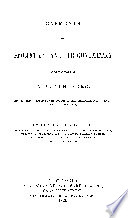 | Adrien Marie Legendre - Geometry - 1852 - 436 pages
...10mX"=Mn, in which m X n is the logarithm of M n (Art. 1) : hence, The logarithm of any power of a given number is equal to the logarithm of the number multiplied by the exponent of the power. 16. Taking the same equation, IQ™=M, and extracting the nib. root of both... | |
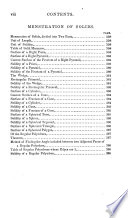 | Charles Davies - Geometry - 1854 - 436 pages
...WmXn=M", in which m X n is the logarithm of J/" (Art. 1) : hence, The logarithm, of any power of a given number is equal to the logarithm of the number multiplied by 'the exponent of the power. 16. Taking the same equation, 1Om = M, and extracting the nth root of both members,... | |
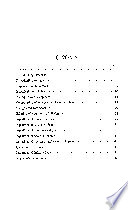 | Joseph B. Mott - Algebra - 1855 - 58 pages
...n log a ; T —Y and if n = -, then losam = - losa : m ° m that is, the logarithm of any power or root of a number is equal to the logarithm of the number multiplied by the exponent ....... , ------ ----------- --------- (THEOREMS.) 1. log 81 = log 34 = 4 log 3 = 4X. 477121... | |
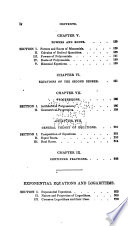 | Benjamin Peirce - Algebra - 1855 - 308 pages
...the above equation, it becomes log. p = n log. v/ p, log. v P = k*Z; n that is, the logarithm of any root of a number is equal to the logarithm of the number divided by the exponent of the root. 13. Corollary. • The equation log. m m' = log. TO + l°g. n»'i... | |
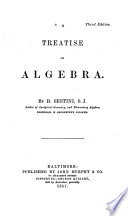 | Benedict Sestini - Algebra - 1857 - 258 pages
...xc ; but from a"= z, we have x = lz ; hence, l.<f= cl.z; that is, The logarithm of the power of any number is equal to the logarithm of the number multiplied by the exponent. But if we take the root of the degree c of both members and consequently, lz' = - = -x; -... | |
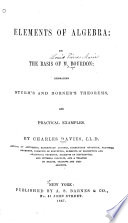 | Charles Davies - Algebra - 1857 - 408 pages
...-(N')~n- *JW - - (6). But from the definition, yj — — log ( n-/N') ; that is, The logarithm of any root of a number is equal to the logarithm of the number divided by the index of the root. 234i From the principles demonstrated in the four preceding • articles,... | |
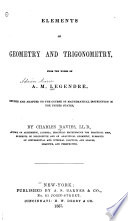 | Adrien Marie Legendre, Charles Davies - Geometry - 1857 - 442 pages
...10mXn=J/n, in which m X n is the logarithm of M * (Art. 1) : hence, The logarithm of any power of a given number is equal to the logarithm of the number multiplied by the exponent of the power. 16. Taking the same equation, W'" = M, and extracting the nth root of both members,... | |
 | Charles Davies - Algebra - 1860 - 332 pages
...by p, we have, Whence, by definition, px — Log mf . . . ( ?.) That is, the logarithm of any power of a number is equal to the logarithm of the number multiplied by the exponent of the poicer. If we extract any root of both members of ( 3 ), denoted by r, we have, a'... | |
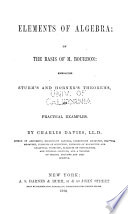 | Charles Davies - Algebra - 1860 - 412 pages
...have, a" =(N')*= \fW - - (6). But from the definition, — = log ("yF) ; that is, The logarithm of any root of a number is equal to the logarithm of the number divided by the index of the root. 234i From the principles demonstrated in the four preceding articles,... | |
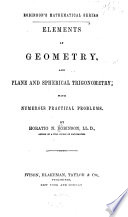 | Horatio Nelson Robinson - Geometry - 1860 - 470 pages
...number by the index of the root, and the quotient will be the exponent of the required root. Hence, the logarithm of a root of a number is equal to the quotient obtained by dividing the logarithm of the number by the index of the root. Now, understanding... | |
| |